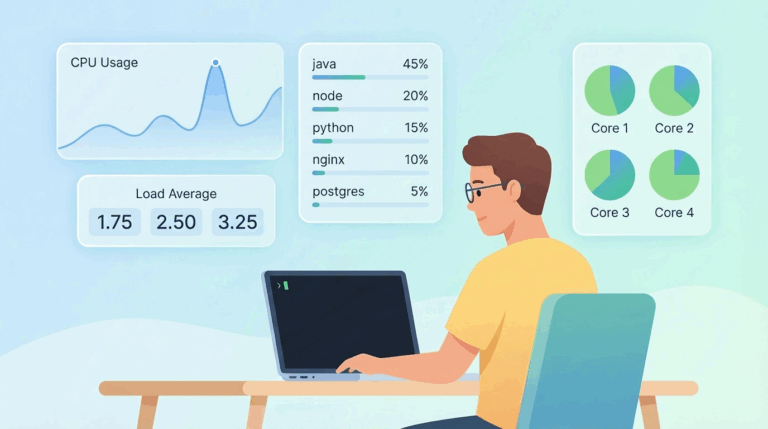Time might seem like a small detail in your operating system — something you rarely think about unless your clock is wrong.
But in reality, accurate timekeeping is essential to everything from file timestamps and system logs to encryption and security protocols.
And now, with Ubuntu 25.10, the way your system keeps time is getting a serious upgrade.
Starting with this release, Ubuntu will switch to Chrony as its default NTP (Network Time Protocol) client, replacing the long-used systemd-timesync.
But this isn’t just about swapping one tool for another. It’s about embracing Network Time Security (NTS) — a modern, more secure way of syncing clocks across networks.
So, why does this change matter? And what makes Chrony and NTS better? Let’s take a closer look.
Table of Contents
What Is Chrony, and Why Now?
Chrony isn’t new — it’s been around for years, quietly building a reputation for accuracy and flexibility.
Unlike the traditional systemd-timesync service, Chrony is designed to work well on systems that don’t stay powered on 24/7, like laptops or virtual machines. It adapts quickly to changing network conditions and can correct large time errors much faster.
That makes it a great fit for modern computing, where uptime isn’t always guaranteed and network environments are constantly shifting.
But Ubuntu’s move to Chrony isn’t just about performance. It’s about security.
See also: Mastering the Linux Command Line — Your Complete Free Training Guide
Enter Network Time Security (NTS)
Chrony in Ubuntu 25.10 will ship with support for Network Time Security (NTS) — a modern extension to the NTP protocol that adds authentication and encryption to the time sync process. That’s a big deal.
Traditionally, NTP traffic is unencrypted, which opens the door to spoofing attacks. An attacker who can intercept your network traffic could feed your system false time data — and that’s more dangerous than it sounds.
Time is used in everything from TLS certificate validation to log timestamping. A system with a manipulated clock is easier to exploit and harder to trust.
NTS solves this by wrapping NTP in modern cryptography, verifying the authenticity of the server and ensuring that time data hasn’t been tampered with in transit. It’s a powerful response to a subtle but serious problem.
How Are Chrony and NTS Connected?
You might be wondering: what’s the connection between Chrony and NTS?
In simple terms, Chrony is the tool, and NTS (Network Time Security) is a powerful feature it supports.
Chrony is an implementation of the Network Time Protocol (NTP) — it’s the software that actually syncs your computer’s clock with time servers on the internet.
What makes Chrony special in Ubuntu 25.10 is that it includes built-in support for NTS. This means it can securely verify that the time information it’s receiving hasn’t been forged or tampered with.
Think of it like this: if NTP is the system for delivering time, then Chrony is the delivery driver, and NTS is the secure lockbox that makes sure nobody messes with your package on the way.
By using Chrony with NTS, Ubuntu is making sure that your system doesn’t just stay on time — it stays securely on time.
A Quiet but Impactful Shift
Interestingly, Chrony has already been available in Ubuntu’s repositories for a while — and it became part of the main archive with Ubuntu 25.04. But with 25.10, it steps into the spotlight as the default. That means most users will benefit from better timekeeping and enhanced security without needing to lift a finger.
And Canonical isn’t alone in this move. Other enterprise-focused distributions like Red Hat Enterprise Linux and SUSE Linux Enterprise have already made Chrony their go-to time sync tool. Ubuntu joining that list shows that secure timekeeping is no longer a niche concern — it’s becoming the new standard.




